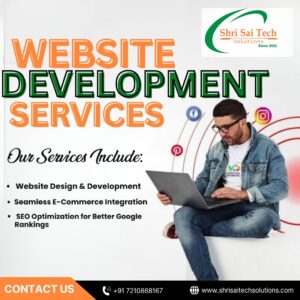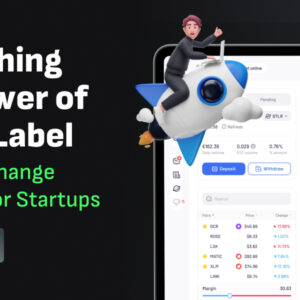Enhancing AI Capabilities Through Hands-On Workshops
Building real AI expertise requires more than theory. Teams need guided, practical experiences that bridge the gap between knowledge and execution. Hands-on AI workshops and training are critical to accelerating internal AI maturity. This article explores how applied learning enhances AI adoption, performance, and ROI.
Why Do Hands-On AI Workshops Outperform Passive Learning?
Hands-on workshops accelerate skill acquisition by combining theory with immediate practice. Participants learn by doing—training models, debugging pipelines, deploying APIs rather than passively consuming lectures or tutorials.
Core Learning Gains:
- Faster Retention: Practice increases memory consolidation by 75% compared to passive methods (source: IEEE).
- Real-Time Problem Solving: Learners encounter real-world issues and learn how to resolve them.
- Immediate Feedback Loops: Trainers guide participants through errors and optimizations in real time.
- Higher Engagement: Teams are 3.4x more engaged when training includes real-life tasks (source: Gallup).
Workshops simulate authentic AI workflows, enhancing comprehension and confidence.
What Do AI Workshops and Training Typically Include?
Effective AI training covers end-to-end development: from data preparation to model deployment. We designs modular workshops that adapt to your organization’s skill level, domain, and business goals.
| Training Block | Skills Built | Tools & Concepts Covered |
| Data Engineering | Data wrangling, cleaning, and feature engineering | Pandas, SQL, Airflow |
| Machine Learning | Model training, validation, hyperparameter tuning | Scikit-learn, XGBoost, TensorFlow |
| Deep Learning | Neural network design and optimization | PyTorch, CNNs, LSTMs, Transformers |
| NLP & Vision | Text and image processing, classification, and generation | HuggingFace, spaCy, OpenCV |
| Deployment & MLOps | CI/CD, model serving, monitoring, and versioning | Docker, MLflow, FastAPI, Kubernetes |
All sessions combine lecture blocks, coding labs, and live project simulations.
How Do Workshops Address Skill Gaps Across Teams?
AI workshops identify and close skill gaps using role-based tracks and adaptive content. Every participant—from engineers to product managers—works on relevant tasks.
Common Tracks:
- Technical Track: Data scientists, engineers, and ML developers.
- Business Track: PMs, strategy leads, and domain experts.
- Compliance Track: Risk, governance, and regulatory professionals.
- Ops Track: MLOps, DevOps, and IT operations.
Sessions are adapted based on initial assessments and follow-up diagnostics.
How Do Hands-On Workshops Support AI Product Development?
AI solutions often fail due to disconnects between prototypes and production systems. Workshops close that gap by teaching full-cycle implementation.
Practical Outcomes from Our-Led Workshops:
- Healthcare Startup: Built a real-time patient triage tool in 3 weeks post-workshop.
- E-commerce Brand: Launched product recommendation engine within 6 weeks of training.
- Insurance Firm: Developed claims fraud detection models with 89% accuracy.
Hands-on experience builds confidence and operational competence.
Why Are AI Workshops More Effective for Enterprise Teams?
Enterprise adoption of AI depends on alignment, collaboration, and tooling. AI workshops support these pillars:
Key Enterprise Advantages:
- Cross-Functional Learning: Workshops break silos by aligning business and tech.
- Custom Use Cases: Teams build models using internal data and industry-relevant problems.
- Toolchain Familiarity: Training uses existing company platforms where possible.
- Scalable Models: Teams build scalable, compliant models using MLOps principles.
This contextual focus ensures learning translates into deliverable results.
What Makes Our Approach Unique?
We combines pedagogy, engineering depth, and business acumen in its AI workshops and training. Training is hands-on, strategic, and outcome-driven.
Signature Elements of Our AI Workshops:
- Use-Case Driven: Every module links to a real-world application.
- Data-Centric: Participants work on sanitized versions of their datasets.
- Mentorship Included: Ongoing guidance ensures concepts are translated into action.
- Custom Curriculum: Modules are chosen based on skills audit and business goals.
Workshops aren’t off-the-shelf—they’re built from your needs.
What Are the Stages of a Hands-On AI Workshop?
We follows a structured three-stage format to ensure learning outcomes and enterprise value.
- Needs Discovery
- Skills and data audit
- Workshop alignment to KPIs and roadmaps
- Immersive Delivery
- Live coding
- Team-based problem solving
- Tool and model walkthroughs
- Enablement Phase
- Playbooks and toolkits
- Project mentorship and review
- Follow-up sessions and Slack support
This ensures training translates into internal capability.
What Technologies Are Covered in Our Workshops?
We designs tech-agnostic workshops, choosing stacks based on client preferences and team skill level.
| Category | Sample Tools |
| Data Wrangling | Pandas, Dask, SQL |
| ML & AutoML | Scikit-learn, XGBoost, H2O.ai |
| DL & Transformers | TensorFlow, PyTorch, HuggingFace |
| MLOps & Pipelines | MLflow, DVC, Airflow, Docker |
| Visualization | Streamlit, Power BI, Plotly |
Tool usage is hands-on, not lecture-based.
How Do AI Workshops Ensure Ethical and Responsible AI?
AI systems must be explainable, fair, and compliant. We integrates Responsible AI modules into all training formats.
Responsible AI Focus Areas:
- Bias & Fairness Checks: Using statistical parity and feature audit tools.
- Explainability Techniques: SHAP, LIME, model transparency frameworks.
- Regulatory Readiness: Covers GDPR, HIPAA, and ISO standards.
- Governance Structures: Introduce documentation, monitoring, and approval workflows.
These safeguards are essential to scalable, trustworthy AI.
How Long Do Workshops Take, and What Is the ROI?
Duration ranges from 2-day intensives to 6-week programs. Formats include in-person, remote, or hybrid delivery.
Post-Training Impact Metrics:
| KPI | Result Range After Training |
| Deployment Time Reduction | 25–60% faster model rollouts |
| Accuracy Improvement | 10–30% better model performance |
| Team Confidence Index | +45% increase in AI readiness |
| Cost Savings | 15–40% via automated pipelines |
ROI is often realized within 3 months of implementation.
How to Launch a Workshop with Us?
Starting is simple and quick:
- Schedule a Discovery Call
Identify pain points and desired outcomes. - Define Scope and Format
Customize curriculum and delivery method. - Deliver Training
Hands-on sessions, guided labs, and mentorship. - Evaluate Impact
Post-training assessments and project guidance.
We adapts to both fast-moving startups and complex enterprise ecosystems.
Frequently Asked Questions (FAQs)
Q1: What distinguishes hands-on AI workshops from online courses?
Workshops include real-time coding, feedback, and business context. Courses are passive and less customized.
Q2: Do workshops include non-technical roles?
Yes. Separate tracks are built for analysts, managers, and business leaders.
Q3: Can training be done remotely?
Yes. We offers remote workshops with full interactivity using virtual labs.
Q4: How soon can a workshop be scheduled?
Within 2–3 weeks from the discovery session.
Q5: Is data security ensured during training?
Yes. Training uses masked or sandboxed data unless otherwise agreed under NDA.
Q6: What if my team has mixed skill levels?
Curriculum is modular, allowing breakout groups by experience level.
What Business Units Benefit Most from AI Training?
AI is not only for tech teams. Cross-functional impact is a core goal.
| Department | Value Gained from AI Training |
| Marketing | Customer segmentation, churn prediction |
| Sales | Lead scoring, pricing optimization |
| HR | Talent matching, attrition modeling |
| Finance | Anomaly detection, credit risk modeling |
| Operations | Supply forecasting, process automation |
Workshops seed AI thinking across the business.
How Do AI Workshops Build Long-Term Capability?
AI workshops are the foundation for internal AI transformation.
They build:
- Execution Confidence: Teams know what to build and how.
- Cross-Functional Synergy: Shared language between tech and business.
- Operational Maturity: Best practices for versioning, monitoring, and governance.
- Innovation Culture: Prototyping mindset that drives ongoing AI use.
Hands-on learning turns AI from theory to competitive edge.




